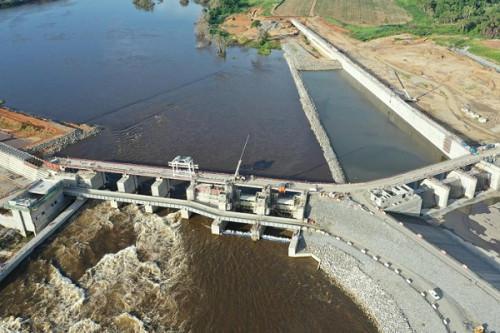The first run-of-river fishery, a component of the Nachtigal Hydropower project in cameroon will be implemented by August 2023. The Nachtigal Hydro Power Company (NHPC) disclosed this. The proposal indicates that when the fishery starts operating in the first quarter of 2024, it will begin producing 30 tonnes of fish annually.
Asser Yoke, fisheries manager at NHPC, said, “We’ll build a reservoir with fish in it at the level of the dam reservoir. Fishing activities will be permitted there for only well-known individuals. Lom Pangar is a check dam, whereas Nachtigal is a run-of-river dam. For instance, Song Loulou, a run-of-river dam like Nachtigal, lacks a fishery. Fishing on run-of-river dams is substantially more difficult. Since it requires careful coordination between the annual fishing schedule and the plant’s operation.”
Also Read: Rehabilitation of Mayo Limani Bridge in Cameroon completed
Benefits of the fishing component of the Nachtigal Hydropower project
Additionally, there are plans to construct a landing stage and provide training in fishing methods customized for fish processing and water retention. The NHPC asserts that the fishery aims to restore the livelihoods of fishermen and wholesalers. This is in addition to the monetary compensation that has already been paid to those damaged by the construction of the dam. She claims that this effort will benefit 200 persons overall who live near the infrastructure.
The initiative is in line with a government project that the Ministry of Livestock, Fisheries and Animal Industries and Electricity Development Corporation (EDC), a publicly traded company in the electricity sector, have been working on since 2021 to develop industrial fishing on dam waters.
If implemented, the run-of-river fishery project should increase the amount of fish produced locally. Which will assist in the implementation of the State’s import-substitution policy. It aims to strengthen domestic production and reduce Cameroon’s reliance on imports of high-consumption goods. Each year, fish and rice serve to further emphasize the country’s trade balance deficit.

Leave a Reply